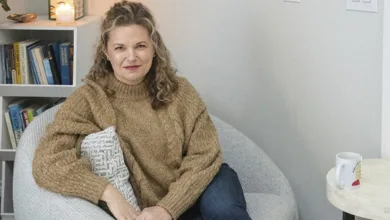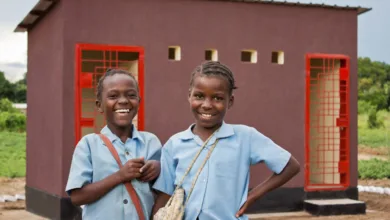The New Normal for the 50+ Generation

As the COVID-19 pandemic rages on, there is an unmistakable sense that the caution and urgency of March and April have faded away.
Perhaps it is too much to ask people to remain vigilant to an ever-present threat without becoming numb to it.
But the issue has grown politically charged and divisive, as nearly every issue in politics seems to become under today’s climate. Many people may need to accept a reality they do not agree with: the virus is here, and not everyone cares as much as they do.
Others may not wear masks or exercise proper precautions, putting an entire generation at risk.
It can be incredibly frustrating for those living with the fear of losing their life to COVID-19. It isn’t fair.
Maybe that has been the toughest lesson about this pandemic. It just isn’t fair.
Learning to accept this and only focusing on what we can control has been the only way to maintain sanity. Expecting others to share the same level of concern as we do is a quick route to disappointment. When we consider how others’ behavior can put us at risk, it becomes even more infuriating. For many of those who fall within the 50+ generation, this has meant accepting what is being called “the new normal.”
The new normal has become synonymous with resigning to a life that will be very different for the foreseeable future. It is a phrase often uttered begrudgingly and with a sense of defeat It also means persisting indefinitely with the same level of precautions and vigilance for. It means a life of fear and restrictions.
What the New Normal Means to Adult Children of High-Risk Seniors
This new normal is particularly challenging for those who fall in the 50+ category as many are caring for elderly parents. For the adult children of high-risk seniors, this can be a precarious position. Many of them have careers, young families, and close friends who do not have the luxury of adapting to the new normal. Their parents may expect too much. Or, conversely, adult children may find themselves placing seniors at risk.
Is the new normal applicable to everyone?
Expecting the entire population to behave like a 70-year-old is unrealistic. And propagating an environment of fear which causes people to live a miserable existence isn’t what keeps people safe.
The authorities’ confusing and sometimes contradictory advice or guidelines hasn’t helped. But there are also undeniable facts. People who do not believe these facts do not contribute to a healthy discussion about the best way to proceed amid this pandemic.
As states reopen, there will be increases in cases. The people at the highest risk are seniors with underlying health conditions. People who do not fit this description are still at risk.
The virus will be present in our communities to some degree for some time. There was never any evidence to suggest that it would just go away without running its course. The purpose of social distancing was only to flatten the curve so that our medical systems could keep up with cases without becoming overwhelmed.
It is time for families across America to have a frank discussion. There will be continued risk present as time goes on, but this risk will not be the same for everyone. Most of us have been living in some form of isolation and restriction since March and have begun to see impacts on our mental health and that of those we love.
Those who can get out of the house and enjoy activities safely are beginning to venture out and do so, but this can cause serious issues when everyone isn’t on the same page.
Those responsible for caring for a parent or senior loved one may have to make significant sacrifices in their own life and health to provide proper care. These self-sacrifices may include not participating in many of the functions and activities that are reopening.
But, for others, it may be time to make some changes. Indeed, it is responsible to continue wearing a mask and practicing proper precaution. No one wants to be responsible for giving anyone COVID-19, let alone a loved one.
Beyond this, shaming people for taking care of their mental health when they are at low risk is wrong. One person’s physical health is not more important than another person’s mental health.
Everyone needs to do the right thing for themselves, now, and not necessarily expect everyone else to understand or appreciate it. It may mean that others do things that put you at risk. But part of your responsibility is to assess the situation you are in and make the right decision for you.
The new normal is anything but “normal” and will be different for everyone.
Sources:
https://www.theverge.com/2020/6/24/21302080/coronavirus-daily-record-cases-covid-19-us-arizona-texas-trump
https://www.usatoday.com/story/news/health/2020/07/16/covid-19-states-including-california-michigan-try-halt-spread/5444903002/
https://www.forbes.com/sites/josiecox/2020/04/22/covid-19-corporate-cliche-why-we-need-to-stop-talking-about-the-new-normal/#63b11064159e





